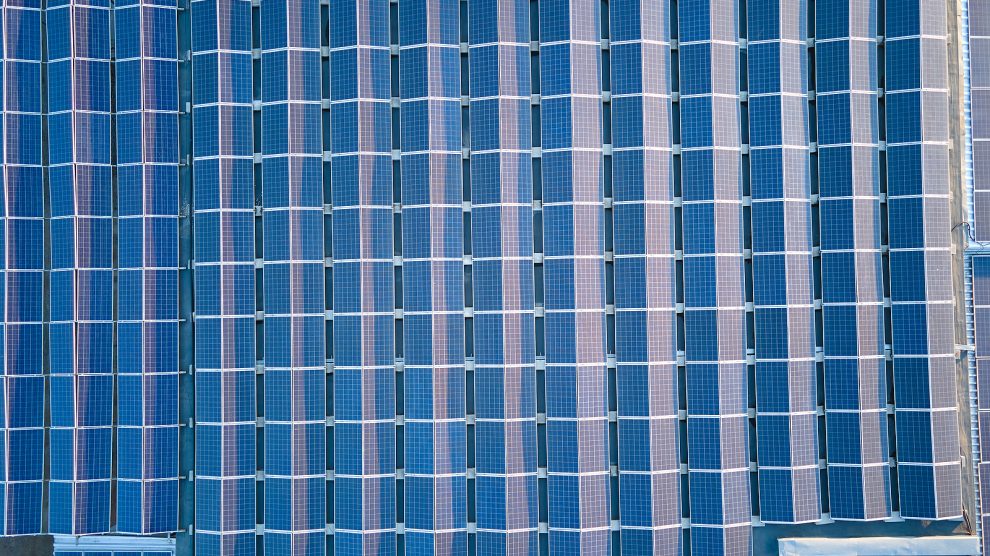European investors need to recognise the potential of climate tech hardware start-ups and allocate more resources to bridge the funding gap.
As Europe grapples with a scorching heatwave, unprecedented wildfires in the east, and rising water temperatures in the Atlantic and Mediterranean, active solutions to address the continent’s alarming climate crisis are in high demand.
Startlingly, Europe has been identified by the World Meteorological Organization (WMO) as the fastest warming continent on Earth. The sustainability crisis has launched a wave of innovative solutions from entrepreneurs across Europe addressing the changing climate, but even some of the most promising solutions in the region are facing fundraising challenges and slowing the path to net zero emissions.
While software innovations can play an important role in solving the climate crisis, hardware solutions are foundational in sectors like energy, new materials, manufacturing, and agriculture. Unfortunately, hardware climate startups in Europe face significant funding challenges due to venture capital (VC) model’s limitations.
To overcome challenges hardwired in the standard 10X return in 10 year model, the climate crisis calls for increased amounts of investment and alternative funding avenues that cater to the unique needs of climate hardware start-ups.
In this article, we explore some of the pitfalls of VC funding, emphasize the need to expand financial resources to propel climate hardware start-ups, and highlight some examples of groundbreaking technologies and the importance of backing these ventures.
The VC model often overlooks promising hardware businesses
Venture capital, the trendy choice for financing new ventures, is not without its limitations. It carries inherent risks, and investors expect substantial returns that compensate for those risks, often at multiples of 10x, 20x, and 30x, within the five to seven year lifespan of a fund.
Not all hardware start-ups fit this profile, especially with longer research and development timeframes, leading to limited funding options. Additionally, the VC short sighted focus on rapid growth can undermine the sustainability and value proposition of hardware climate-tech solutions, and limits the range of opportunities for investors.
Hardware climate tech companies often struggle to attract investors due to a lack of knowledge in hard sciences and engineering. In the world of climate tech, there’s also a common stereotype that founders in hardware technology companies focus mainly on science and the climate “mission” overlooking the business aspects of running a start-up.
This perception arises from the fact that many tech founders in this space have PhDs in STEM (Science, Technology, Engineering, and Mathematics). However, VCs like Planet A and Zero Carbon Capital, whose partners are all scientists by education, debunk this myth and are starting to bridge this gap by investing significant amounts in climate tech hardware solutions in Europe.
These start-ups hold the capacity to create a tangible impact in addressing climate change. One notable example is their portfolio company RepAir, which specialises in the direct capture of CO2 from the atmosphere. Another innovative venture, Phycobloom, utilizes algae to produce jet fuel using atmospheric resources.
Exploring alternative funding avenues
Hardware climate tech companies can and should also explore various funding options beyond traditional VC.
Corporate Ventures, for example National Grid Partners in the US, and more recently TDK Ventures opening in London, can provide valuable support with research and development and de-risk investments for hardware start-ups, allowing them to raise capital while retaining more equity.
Crowdfunding is another great option, and one that can serve as a proof point to negotiate with institutional investors while engaging the public in supporting climate tech initiatives.
Government funding through projects like Innovate UK, and the new German DeepTech and Climate Fonds (DTCF), are also important funding routes.
Many examples demonstrate that hardware companies dedicated toward sustainability not only benefit the planet, but also offer promising opportunities for investors. While Tesla often stands out, other examples, such as the German company Sonnen GmbH, recognised for its solar energy storage systems for households, was acquired for 396 million US dollars.
By prioritising long-term sustainability and recognising the intrinsic value of environmentally conscious investments, investors can play a pivotal role in fostering a more sustainable future.
Increased funding and support are essential
Through Village Capital’s Greentech accelerator, we have collaborated with several companies that showcase exceptional hardware-driven solutions tackling clean energy challenges. Given the significant potential impact of these innovations, prioritising funding for these ventures becomes imperative.
Sinergy Flow stands out with its innovative redox flow batteries designed for clean energy storage. These batteries are made with sulphur—a byproduct of the petrochemical industry—and offer efficient and sustainable solutions to store and utilise renewable energy effectively.
Another impressive company is Heliorec, which specialiaes in offshore floating solar panels. By harnessing solar power in offshore environments, Heliorec overcomes the limitations of land space and optimizes the generation of clean energy from the abundant solar resources available at sea.
In a world facing the challenges of a rapidly warming climate, addressing food scarcity and security is a top priority. Technifris is developing a non-intrusive device that effectively prolongs the shelf-life of fruits, vegetables, and flowers by scrubbing Ethylene from shipping and storage containers. Mitigating spoilage and reducing waste in the supply chain, particularly in regions like Sub-Saharan Africa, can lower spoilage up to 50 per cent.
Hardware climate tech solutions are indispensable in addressing the climate crisis. In order to achieve the EU and global climate targets, it is crucial to increase investments in climate tech. The Climate Policy Initiative estimates that 4.35 trillion US dollars will need to be invested annually in climate tech by 2030 to meet net zero goals. While hardware start-ups face unique challenges, increased funding and support are essential to drive innovation and scale their solutions.
European investors need to recognise the potential of these start-ups and allocate more resources to bridge the funding gap. By nurturing hardware innovation, Europe can foster a thriving climate tech ecosystem, and make significant strides in combating climate change.
This content has been produced in collaboration with a partner organisation through our Global Visibility Programme. Our programme helps companies boost their digital presence and strengthen the thought leadership of their experts. Find out more here.






Add Comment